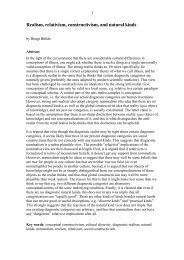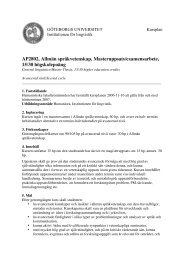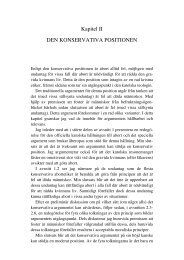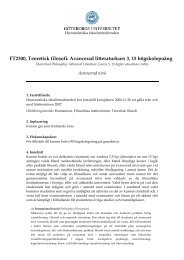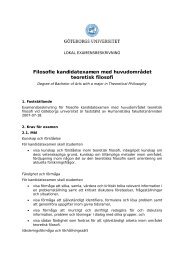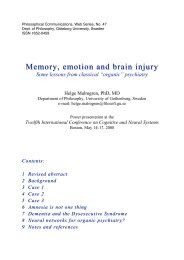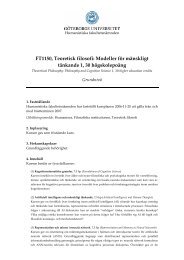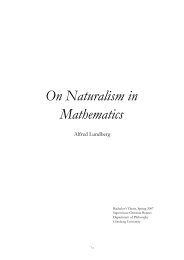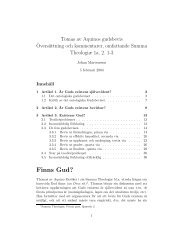Moral Relativism
Moral Relativism
Moral Relativism
- No tags were found...
You also want an ePaper? Increase the reach of your titles
YUMPU automatically turns print PDFs into web optimized ePapers that Google loves.
7enforces the rule, where enforcement involves social sanctions (see Brandom 1994, chs1–3). It may be useful to distinguish two mechanisms of calibration: the teaching ofnovices and mutual adjustment among experienced users. In the process of the first,novices are introduced to conceptual rules by other, already experienced users. Since thisis the standard route by which novices are introduced to new concepts, a degree ofcalibration is ensured right at the point of entry of new thinkers to a community ofthinkers. But mutual adjustment among already experienced users also plays an importantrole in maintaining the community calibrated. Thinkers monitor one another and pointout discrepancies in the norms followed. In conversation, they will often encounterdivergences in opinion and following up such divergences will sometimes reveal adiscrepancy in the conceptual norms the thinkers believe to be in force. In the case ofteaching a novice a new concept, the teacher clearly enjoys a position of authority: thelearner has to defer to the teacher’s greater competence (except if the learner detectsconflicts between the norms taught by the teacher and those norms with which the learneris already familiar). In cases of mutual calibration of two already experienced users, oneof them may or may not be in a position of authority—a mere “end-user”, for example,will defer to the authority of a frontline specialist.The conceptual rules and methods that thinkers use and to which thinkers subjectthemselves, can take a variety of different forms. There may be rules that tie theapplicability of a concept to certain experiential input. Thus a typical competent user ofthe concept “red” will reliably recognise red things on the basis of a certain kind ofexperience. Learning the concept will proceed by exposure to paradigm examples andfoils until the learner reliably classifies the same things as red as his or her alreadycompetent teachers. Some may ask whether the experiences of learner and teacher arereally the same and whether therefore they really follow the same rule. But there clearlyis a kind of perceptual stimulus caused by red things that typical users respond to, andrespond to very reliably. Whether that stimulus feels the same to all of them is beside thepoint. Successful calibration of a novice, in this case, requires that the novice achievecoincidence in judgement with his or her teacher(s).Other conceptual rules may link concepts: “every bachelor is an unmarried man andvice versa” is perhaps such a rule. Teaching such a rule can take the form of an explicitdefinition. But it need not. One could teach the concept piecemeal, by explaining onseparate occasions that being married is sufficient for not being a bachelor, that beingmale is necessary for being one, and that being male and never married is sufficient. Itmay also be possible to learn the concept of a bachelor just by examples and foils.However, it is doubtful that a user who cannot, at least upon reflection, recognise thatunmarried maleness is sufficient and necessary for bachelorhood has mastered theconcept. (Suppose someone can reliably pick out bachelors from non-bachelors becausehe has been taught the piecemeal way and has picked up on a feature that all bachelorshappen to share—let’s suppose a certain laddishness, or a certain unkempt appearanceetc. I believe they would be less than fully competent with the concept and ought to be setstraight. This lack of competence might be revealed through discussion with others.)Unlike “bachelor”, many other concepts do not admit of easy definition yet are notpurely perceptual either. Consider “river”. Or the concept of flowing. Neverthelessteaching of such concepts succeeds: communities of thinkers are very well calibrated in



